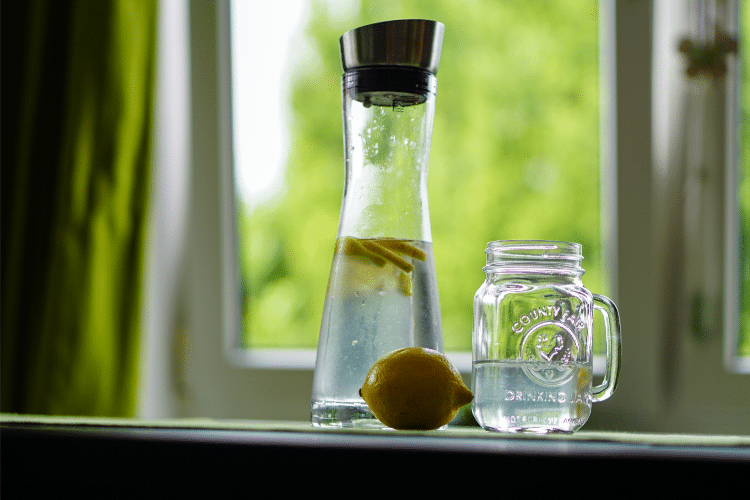
Are Vitamins Actually Good for You? {Including Infographic}
Yes, it is a trick question. But before you reach for your vitamin supplements, read this article. Vitamins are not just good for your body, they are crucial nutrients. Without them, your body could develop a number of deficiencies; we are thought this as early as elementary school. But just in case you hated your science teacher, here’s another opportunity to get a lesson on what vitamins are and what their lack can mean for you and your body.
Vitamins are a highly important part of your diet—although necessary only in little quantities—they help your body function properly. Although they do not provide energy like the big guys—carbs, fats, and protein—a consistent absence of them in your diet can cause your body to act up.
While discussing this topic with our friends from Medalerthelp who designed an excellent vitamins infographic, we came to the conclusion that there is only one proper way to get your vitamins—a well-balanced diet. The best way to add more vitamins to your diet is to ingest them from natural food sources because most of the vitamin content in supplements doesn’t even get absorbed and merely passes through your body. However, although many vitamins can be found in fresh fruit and veggies, if you already have a deficiency or a predisposition to develop one, you can take a synthesized vitamin supplement in addition to a nutrient-rich diet.
While most people believe that favoring a vitamin-rich diet can hurt your budget, nothing could be farther from the truth. Getting a proper diet doesn’t have to be expensive. But, back to our lecture.
Basically, vitamins are of two types: those that dissolve in water (water-soluble) and those that will only dissolve in fat (fat-soluble). The water-soluble ones are vitamins of the B complex and vitamin C, while the fat-soluble ones are vitamins A, D, E, and K.
Let’s briefly take a look at each of them.
Vitamin B
Vitamin B is not a single vitamin but a large group of vitamins. This group consists of vitamins B1 (Thiamine), B2 (Riboflavin), B3 (Niacin), B5 (Pantothenic acid), B6 (Pyridoxine), B7 (Biotin), B9 (Folate), and B12 (Cobalamin). But hey, what about B4, B8, B10, B11, and the rest? Well, those turned out not to be essential for the human body. In fact, some of them are even toxic to us. When all eight are made into one single supplement, it is referred to as vitamin B complex.
Regular intake of vitamin B-rich foods can help boost nerve and muscle function, produce red blood cells, improve brain function, and lots more. They can be found naturally in meat, spinach, broccoli, liver, eggs, etc. Their deficiency can lead to anemia, fatigue, and hair loss, and much more.
Vitamin C
This vitamin is great for preventing and treating the common cold, healing, and it also enhances better blood flow around the body. If absent in the diet, one might experience gingivitis, easy bruising, and slow wound healing, plus hair breakage.
You can find vitamin C naturally in citrus fruits as well as kale and peppers.
Vitamin A
If you want your pearly whites sparkly, your vision sharp, and your immune system on point, then it’s time to go one hundred percent on your vitamin A-game.
Otherwise, you might begin to experience symptoms like skin disease, xerophthalmia, and vision loss. Some carrots, cod liver oil, and liver should give you a good natural deal of vitamin A.
Vitamin D
This one is a fantastic vitamin for your bones. It keeps them from getting fractured easily, and scientists even report that it may have a hand in slowing down the progression of the disease in a patient with osteoporosis.
If deficient, an individual may experience frequent infections, fatigue, and body pain. Foods like salmon, eggs, breakfast cereal, and tofu are rich in vitamin D. Let’s not forget that it’s also the only vitamin your body can produce from sunshine too.
Vitamin E
Ladies love this one. It helps to combat free radicals, which, in turn, makes your skin look younger. Plus, it keeps your cholesterol levels balanced. Foods like sunflower seeds, hazelnut oil, and almonds are excellent carriers of vitamin E.
However, if one is deficient in vitamin E, it could cause muscle pain or weakness, weakened immune system, and peripheral neuropathy.
Vitamin K
Vitamin K is essential for blood clotting, and also keeps your bones strong as well. When absent, you guessed it, an individual tends to bruise easily, experience very heavy bleeding during menstruation, and can even lead to gastrointestinal bleeding. If you don’t like the sound of any of these, then ensure you eat vitamin K rich foods like soybean oil, cooked mustard greens, kale, broccoli, and raw spinach.






